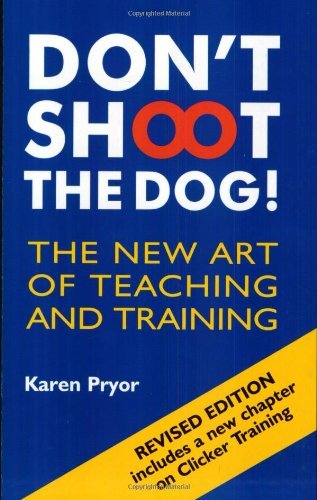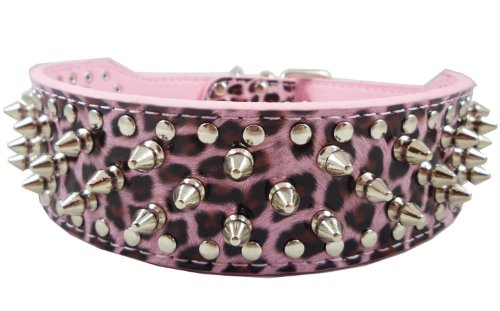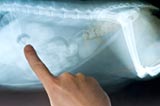
Man's best friend has one characteristic, no matter what the breed, that every dog owner hates: compared to their owners, they have a short lifespan. Whether yours is an adorable Labrador or a pugnacious Pug, your pup's unlikely to outlive you: and for most pet owners, that means that eventually there will be grief. The question is, can we put that day off for as long as possible? Some researchers and activists are saying that the answer is "Yes: but we need to make changes."
 Credit: author
Credit: author
This Chocolate Lab lived to the age of fifteen on quality food, plenty of exercise, and heaping helpings of love.
As a general rule, the larger the dog, the shorter the lifespan. A small breed such as a Chihuahua or Maltese, on average, can be expected to live for fifteen years or more. Large breeds such as Great Danes or Bernese Mountain Dogs are senior citizens at the age of eight or nine years[1]. America's most popular breed, the Labrador Retriever, has an expected lifespan of ten to fourteen years (one of mine died at ten of cancer, the other at fifteen of old age).
Naturally, for owners who have deeply bonded with their pets - and who hasn't? - the goal is to meet or exceed that maximum life expectancy while maintaining their companion's quality of life. Activists say that it can be done, but it takes effort: most owners will tell you it's worth it. What can you do to reach this goal? and what can the industry do? Let's see.
 Credit: alvimann / morguefile.com
Credit: alvimann / morguefile.com
Giving your dog better food is one of the easiest changes to make.
It is deceptively simple to say that changing your pet's diet can extend his life. Pet care is a $50-billion industry in the US, much of it spent on food. With that much cash on the line, you can bet that there are advertising claims and even "wars" going on among factions in the dog food industry. Are grains just "fillers"? Are "byproducts" killers? Should you go organic? Raw? One school of feeding claims that all canines are carnivores and should only be fed meat (they've obviously never seen my Lab, who eats acorns by the pound). So you must do your research.
Even veterinary schools have caveats for people researching the best food for their pets. Tufts University[2] has some guidelines for sorting the advertising from the facts. My best advice is to feed quality food - not the cheapest bag you can find at your grocery store. More advice: do not merely accept at face value any claim that's included in advertising, because in our society making money is generally much more important than making the best possible product. Finally, whatever food you choose, monitor your pet's health: energy level should be high, stools should be firm, eyes should be bright and coat should be shiny. And they should stay that way.
The last piece of advice I have for you? Ignore any advice from someone who claims to have "the truth." Of course, that's also true in politics...
 Credit: author
Credit: author
A dog needs more exercise than just jumping on and off the couch.
If you think the only Americans with an obesity problem are humans, think again: our dogs are overweight, too. Just like their owners, they gain weight by eating more calories than they burn in their daily exercise - and that extra weight is just as dangerous for them as it is for Mommy or Daddy[3]. Being overweight adds unnecessary stress to your pet's muscles and joints and increases strain on the heart and liver. How do dogs get fat? For one, we overfeed them: too much kibble, too many treats. For another, too often they spend their lives confined to small areas and get no exercise from "parents" whose chief workout regimen is curls with the television remote.
Your pet needs exercise every day (and from the looks of your butt, so do you). A daily or twice-daily walk stimulates his brain, socializes him, and exercises joints and muscles. If nothing else, it lets your dog visit every fire hydrant in the neighborhood to "check his p-mail." Frequent trips to the dog park or play days with other dogs are a necessity for his mental and emotional health: they may adore their humans but they still need canine companionship.
 Pukka's Promise: The Quest for Longer-Lived Dogs
Pukka's Promise: The Quest for Longer-Lived DogsSpaying and neutering refer to surgical procedures that, respectively, correspond to a complete hysterectomy and physical castration in humans. Traditionally, veterinarians have recommended spaying and neutering pets for a variety of reasons. For instance, studies have demonstrated that spayed females have a significantly lower chance of developing mammary cancer; and neutered males are less likely to demonstrate undesirable behavior such as roaming and territoriality[4].
On the other hand, spayed females have a high incidence of urinary incontinence (my 3-year-old spayed female has a lifelong prescription for Proin® to treat this) and, some believe, are more likely to react to vaccines. Obesity rates are also higher among neutered dogs.
As an alternative to the surgical procedures that remove sex organs, a small but growing group of veterinarians offer tubal ligation for females and vasectomies for males. The sex organs are left in place - they're just "disconnected."
Americans have been taught by the ASPCA and Humane Society that all but breeding animals should be spayed or neutered to prevent unwanted puppies. In Europe, however, pet owners leave their dogs intact and carefully confine the females when in season. It's what responsible pet owners do - though most of them probably have not seen what a full-grown German Shepherd male can do to reach a female in heat: tunneling or breaking down doors are not out of the question!.
Have a thoughtful discussion with your veterinarian. If he or she doesn't want to talk, you may want to look for a new vet.
 Credit: ronnieb / morguefile.com
Credit: ronnieb / morguefile.com
Vaccinations are a part of your dog's life - but are they too big a part?
Pets in this country must be vaccinated against several diseases including rabies, parvovirus and canine distemper to obtain a license. Most puppies are vaccinated in their first few weeks, and the vaccines are given as boosters throughout life. As little as fifteen years ago, dogs required a booster shot annually; but a three-year shot is now available. Regular re-vaccination is required, even though research demonstrates that they may maintain immunity for many years from their initial vaccinations[5]. Vaccine researchers are working to reduce the frequency of vaccinations to five- or even seven-year intervals.
Why would you want to reduce vaccination frequency? Side effects, including anaphylactic shock at the time of the injection are rare but do occur. There is also evidence of other side effects that take longer to develop such as reports of an autoimmune disorder, autoimmune hemolytic anemia.
Foregoing vaccination entirely because of a small possibility of an adverse reaction is probably not wise; since the possibility of contracting a fatal disease is a serious consideration. However, you're wise to work with a trusted veterinarian to vaccinate your pet only when absolutely necessary.
 Credit: author
Credit: author
Meeting your new dog as a puppy can give you insight into his genetic background.
Breeding in this country is driven almost entirely by show-dog breeders, which is not necessarily a good thing. Many are bred for their looks instead of for their function - flat-faced breeds such as Bulldogs and Pugs have been bred for ever-flatter faces, which has proven deleterious to some breeds' overall health[1]. Other dogs are bred mostly to "breed in championship genes" without attention paid to breeding out medical problems such as hip displaysia and heart disease.
The healthiest of all may actually be mutts, which by their very nature avoid the inbreeding that has caused health problems in some more popular breeds. Hybrid vigor could lead to a longer lifespan, which may well be one reason for the recent popularity of crossbreeds like Labradoodles and Goldendoodles.
National kennel clubs in Scandinavia are working to change standards for breeds and encorage breeders to match parents for health instead of looks. The American Kennel Club does not yet do so, but the smaller United Kennel Club is encouraging breeders to stop breeding for form. Your job in this endeavor is to research any potential acquisition as far as you can. Meet the parents if at all possible to observe their health and demeanor. Check out the breeder's facility - all of it - for healthy dogs and suitable treatment. Do your research!
Far too much of the "research" available near the top of online search results is anecdotal; and far too many claims are based in greed, ignorance, or both. Your research into improving your pet's longevity should focus on reputable scientific studies, not advertising claims or statements based on one person's experience with a single dog.
Still, common sense goes a long way: as a dog owner, you have little or no influence over breed standards and if you choose to rescue a stray or "pound puppy," you have no way to research the dog's genetic history. Still, you are very likely to increase a dog's lifespan by doing exactly the same things that medical professionals say will expand your own: eat right, get plenty of exercise, and socialize whenever you can. Find a good veterinarian who is willing to talk to you about treatment options, especially vaccinations, and you will know that you're on the right track.
Now, go give your dog a hug!
 Designer Dog: Jorkie
Designer Dog: Jorkie
 How to Exercise Your Dog: The Benefits and Tips For Exercise
How to Exercise Your Dog: The Benefits and Tips For Exercise
 Hate to Walk Your Pulling Dog? Heres the Instantaneous Solution (Really!)
Hate to Walk Your Pulling Dog? Heres the Instantaneous Solution (Really!)
 My Dog Jumps Up On People
My Dog Jumps Up On People
 How to Brush Dogs Teeth Without Losing Your Fingers!
How to Brush Dogs Teeth Without Losing Your Fingers!
 Tips For Renting With Pets: Finding a place to live with your dog
Tips For Renting With Pets: Finding a place to live with your dog
 Designer Dog Collars
Your dog can be stylish too!
Designer Dog Collars
Your dog can be stylish too!
 Dehydrated Raw Dog Food Puts the Wag in Your Pets Tail
The Case for Dehydrated Raw
Dehydrated Raw Dog Food Puts the Wag in Your Pets Tail
The Case for Dehydrated Raw
 Why Vet Care is So Expensive
Why Vet Care is So Expensive
Why Vet Care is So Expensive
Why Vet Care is So Expensive
 The Evolution of Dogs: 5 critical steps in the evolution of the modern dog
5 Critical Steps in the Evolution of Dogs
The history of o
The Evolution of Dogs: 5 critical steps in the evolution of the modern dog
5 Critical Steps in the Evolution of Dogs
The history of o
 Pettiquette: The Art of Responsible Dog Walking
Cmon Baby, Ill Show You How to Walk the Dog
Pettiquette: The Art of Responsible Dog Walking
Cmon Baby, Ill Show You How to Walk the Dog
Copyright © 2005-2016 Pet Information All Rights Reserved
Contact us: www162date@outlook.com